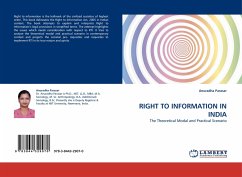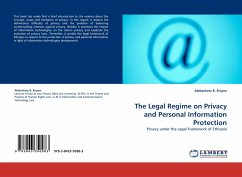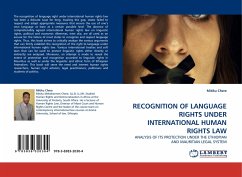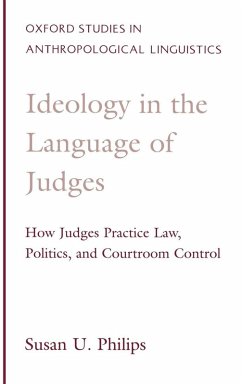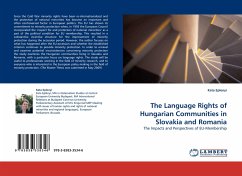
The Language Rights of Hungarian Communities in Slovakia and Romania
The Impacts and Perspectives of EU-Membership
Versandkostenfrei!
Versandfertig in 6-10 Tagen
32,99 €
inkl. MwSt.

PAYBACK Punkte
16 °P sammeln!
Since the Cold War minority rights have been re-internationalized and the protection of national minorities has become an important and often controversial factor in European politics. The EU has shown its commitment to minority protection when, in 1993 the European Council incorporated the 'respect for and protection of national minorities' as a part of the political condition for EU membership. This resulted in a substantive incentive structure for the improvement of minority protection during the accession period. However, the author focuses on what has happened after the EU-accession and w...
Since the Cold War minority rights have been re-internationalized and the protection of national minorities has become an important and often controversial factor in European politics. The EU has shown its commitment to minority protection when, in 1993 the European Council incorporated the 'respect for and protection of national minorities' as a part of the political condition for EU membership. This resulted in a substantive incentive structure for the improvement of minority protection during the accession period. However, the author focuses on what has happened after the EU-accession and whether the established criterion continues to provide minority protection. In order to unravel and examine potential inconsistencies concerning minority protection the study examines the Hungarian communities living in Slovakia and Romania, with a particular focus on language rights. The study will be useful to professionals working in the field of minority research, and to everyone who is interested in the European policy-making in the field of minority protection. (The Master Thesis was submitted in May 2009)




